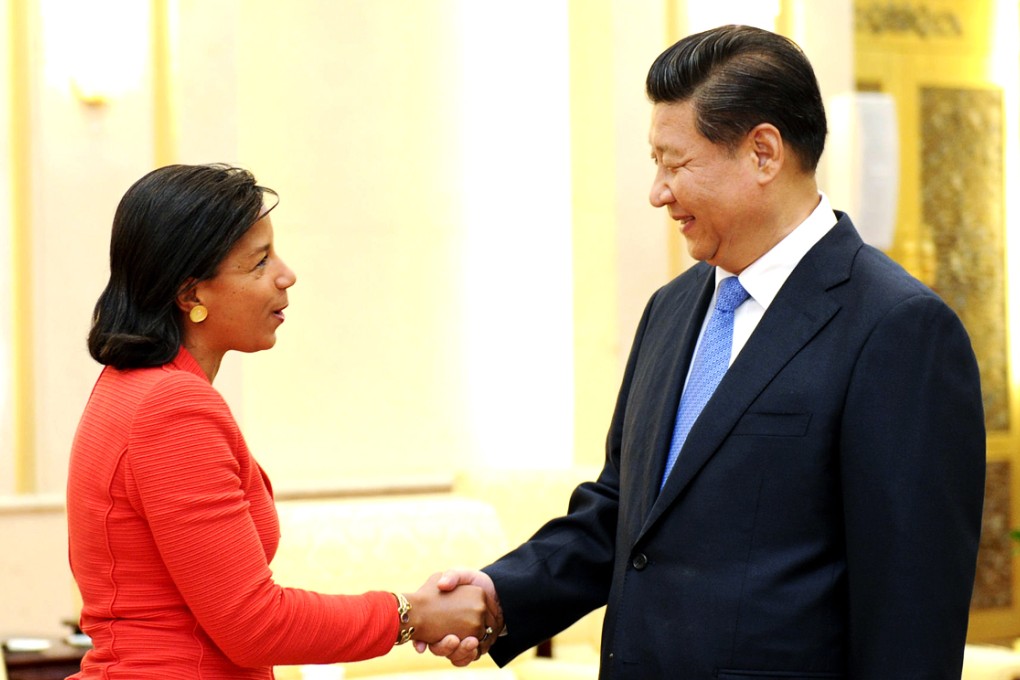Washington backs off from pressing Beijing on Hong Kong political reform
Washington uses low-key approach with Beijing over city's democratic future as analysts argue countries have 'more urgent ' issues to address

Washington has spoken out about its desire to see Hong Kong move forward in its democratic development - but also believes that the issue is an internal affair for China, according to several sources.
US National Security Adviser Susan Rice raised the issue of Hong Kong during her visit to Beijing earlier this week, sources said. But it was only a side issue among a wide range of topics that the two sides discussed, the sources said.
It is not clear when Rice mentioned Hong Kong to Beijing officials. But The Washington Post has reported that Hong Kong was discussed when Rice met President Xi Jinping on Tuesday.
Sources said Washington was aware that the National People's Congress (NPC) had the authority to decide arrangements for Hong Kong's chief executive election in 2017. "There may be different interpretations … but Hong Kong is part of China and it is within its rights to exercise the authority," one source said.
Despite the moderate stance from Washington, Jiang Yu, the foreign ministry's deputy commissioner in Hong Kong, on Wednesday stressed that Beijing would "absolutely not tolerate" external interference in the city's affairs. Jiang made the point after The Washington Post reported that Rice had discussed Hong Kong with Xi.
Shi Yinhong, a US affairs expert at the Renmin University of China, said Rice "only briefly mentioned Hong Kong".
He said China and the US had "more urgent issues to deal with", such as establishing a protocol for their military jets over the South China Sea.